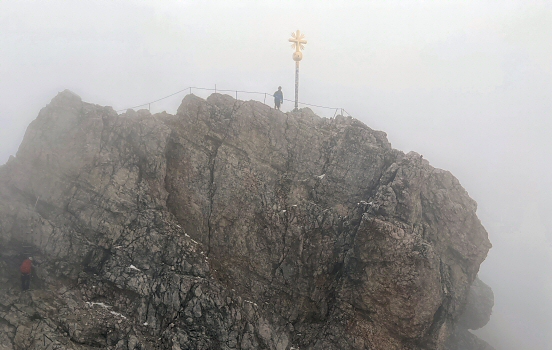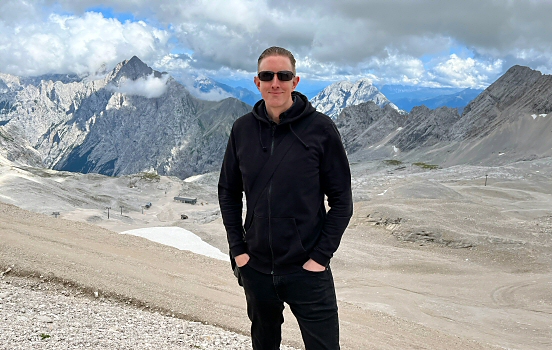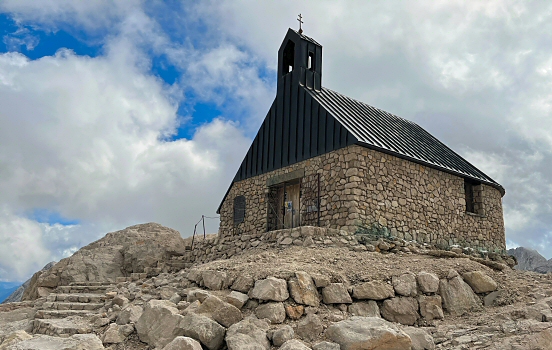Somewhere above the clouds, where the schnitzel stops and the silence begins, there’s a jagged piece of rock called the Zugspitze. At 2962 meters above sea level, it’s the highest point in Germany.
 The summit of Zugspitze.
The summit of Zugspitze.
I stand near the top, which is barely visible through the mist. Some sort of golden cross is bolted into the summit like some Catholic antenna reaching toward the gods. Two brave climbers are going up the vertical wall, climbing a ladder looking like it may collapse any minute.
 At Schneeferner Glacier.
At Schneeferner Glacier.
Even though the summit is awe-inspiring, there is something further down on the other side that really gets under my skin. The Schneeferner Glacier may not look like much at first, which is actually the real cause of concern. It used to be the largest glacier in Germany, but it has been reduced to a ghost of its former self. Scientists and locals claim that it will be gone within a generation.
 Mariä Heimsuchung church at Schneeferner Glacier.
Mariä Heimsuchung church at Schneeferner Glacier.
It’s a strange feeling. The wind cuts through my jacket and the temperature is below zero, while the Zugspitze towers above me like an immortal god. I should feel like a small and tiny creature crawling on the Bavarian Alps, but instead I feel compassion and guilt for the glacier.
The global warning set in motion by us humans is hard to reverse. This fragile ancient ice will likely be gone before me, on a mountain that will stand until the end of time. A little apocalypse in slow motion.

Comments
No comments yet.
Leave a reply